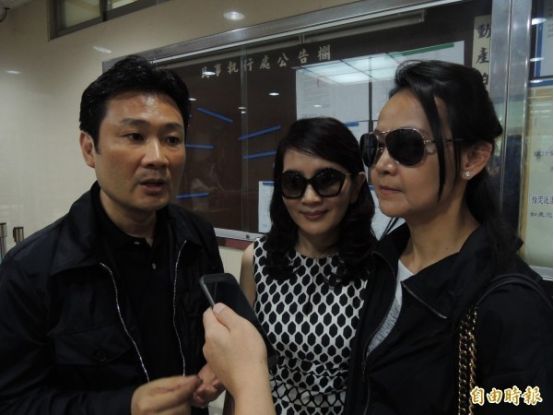Nan Guoxi (left) sued the media for reporting that he had laundered money for the Yamaguchi-gumi gang, but the court ruled against him.
According to the Liberty Times, a Taiwanese newspaper, Nan Guoxi, the son of the late master of Chinese culture Nan Huai-Chin, sued television presenters Hu Zhongxin and Cai Yuzhen, and The Journalist, a news magazine, for reporting that he had been involved in the money laundering for the Japanese mafia Yamaguchi-gumi gang, demanding a compensation of TWD 1 million and a public apology. The Taipei District Court, however, held that the defendants had made reasonable investigations before reporting, so it ruled against Nan Guoxi. He could choose to appeal against the first ruling.
According to the verdict, the presenters Hu Zhongxin and Cai Yuzhen both talked about Nan Guoxi’s suspected money laundering case on political talk shows in September 2016.
In the same month, The Journalist pointed out that “The real key person is the Chinese American Nan Guoxi, who is a big shareholder of AsiaVest and the son of the late master of Chinese culture Nan Huai-Chin. … The stakeholders in the money-laundering case of the Yamaguchi-gumi gang did not vanish from the public eye after being arrested in Taiwan in 2004 … We just wonder how Mr. Nan Huai-Chin, a master of Confucianism, Taoism and Buddhism, would have felt if he saw what his son had done?”
Nan Guoxi held that those groundless remarks had insinuated that he was suspected of helping the Yamaguchi-gumi gang with money laundering, so he brought a civil lawsuit on the ground that those who had made these remarks had deliberately damaged his reputation with purpose.
All the defendants argued that their remarks were justified to be genuine as all of them were cited from the judgments rendered by the local court in Tokyo, information released by the police, and the website of the Hong Kong Stock Exchange.
After hearing the case, the judge held that the defendants were all professionals in journalism who closely followed the major international money laundering cases on the basis of the media’s freedom of news and speech. Given that the remarks had been reasonably verified and there were established reasons to believe that they were genuine, the defendants shall be protected by the freedom of speech, even though the coverage could not be thoroughly proved to be true. Therefore, the judge dismissed Nan Guoxi’s allegation.
(Syndicated content)
Read more:
Gangster Vikas Dubey’s Encounter Questions Lack Of Reduction In UP’s Gun Culture



































